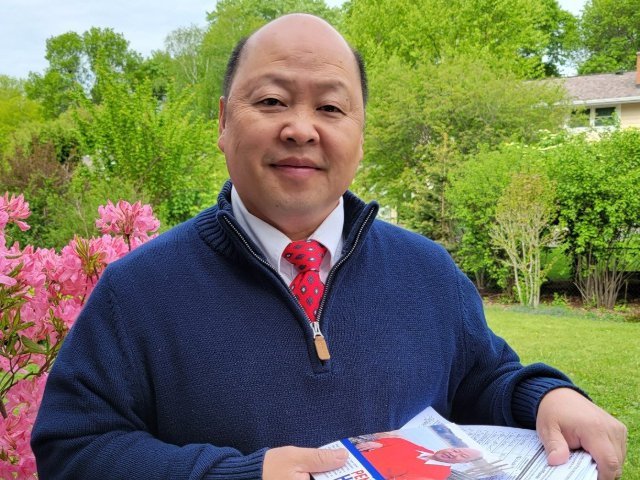Peng Her, a longtime leader in Madison’s Hmong community, is the CEO of The Hmong Institute, a nonprofit that provides services to resettled political refugees of Cambodia, Laos, and Vietnam. Isthmus spoke with two sources with deep ties to that community who allege that Her used the nonprofit and his leadership position to further his recent run for lieutenant governor (Her lost the Democratic nomination for that office to Sara Rodriguez in the Aug. 9 primary.)
These sources tell Isthmus that Her took advantage of Hmong elders and others in the community by collecting signatures while The Hmong Institute distributed free food at the nonprofit’s Femrite Drive location in May. Both sources were contacted by members of the Hmong community about the campaign activity, and one witnessed it personally. Isthmus also obtained statements, with help from an interpreter, from several Hmong elders about feeling pressured to sign Her’s nomination papers. Statewide candidates need to submit 2,000 valid signatures to appear on the ballot; signing does not obligate support on Election Day but voters can’t sign nomination papers for more than one candidate in a race.
“When people would come and pick up food from the food drive, they were asked to sign Peng’s nomination papers. Many didn’t know what they were signing and when they learned more about it, they felt tricked,” said one of the sources. “The Hmong community is very close-knit and many don’t feel comfortable speaking out against a prominent member. But there are Hmong elders who are upset and won’t be picking up food at The Hmong Institute anymore.”
Her acknowledges that his campaign, at least twice, collected signatures while The Hmong Institute distributed food to the community. But he denies this was inappropriate.
“At no time and at no event during the entire period during which we collected signatures was there any suggestion that any individual would receive something in exchange for signing the nomination papers. There is a public food distribution by The Hmong Institute twice a month, once to clients of The Hmong Institute and once to the general public,” Her wrote in an email. “Individuals drive into the parking lot at the building where we rent space and food is brought to their cars. These are public events in a parking lot. As we did at many public events, the campaign had volunteers collecting signatures from those willing to sign the papers.”
The sources allege that staff members of The Hmong Institute assisted in collecting signatures during the nonprofit’s food drives.
“There are Hmong people who do support Peng. The problem is putting people in a situation where they feel forced to sign a document or risk alienating themselves from the community,” a different source told Isthmus. “A lot of our elders are also Republicans. There are cultural and language barriers and some of these elders didn’t even know what the lieutenant governor does or what exactly they were signing.”
Isthmus reached out to three staffers of The Hmong Institute — who are listed as circulators on Her’s nomination papers — but they did not return phone calls or texts to confirm whether they were directed by Her to do campaign work while they were on the clock. Her would not comment on whether these circulators are his employees: “Our policy does not allow me to confirm any individual’s employment status,” wrote Her.
Madison attorney Mike Wittenwyler, an expert in campaign finance and election law, was not familiar with the allegations against Her but did provide insight into whether the activity may have violated the law.
“There are three things potentially going on here. First, is the IRS tax. A charitable organization isn’t supposed to be doing anything related to elections. Whether it’s the Red Cross or the American Heart Association, 501(c)(3) organizations can’t engage in political activity,” Wittenwyler tells Isthmus. “Then there is campaign finance law. If a candidate is using space or employees for campaign-related purposes, that’s an in-kind contribution that needs to be documented. That applies to all corporations including nonprofits.”
Her’s campaign finance reports show no in-kind contributions from The Hmong Institute. Wittenwyler says Wisconsin’s election bribery statutes also prohibit candidates from giving “anything of value” to voters. The statute states this applies to “the signing of any nomination paper.”


